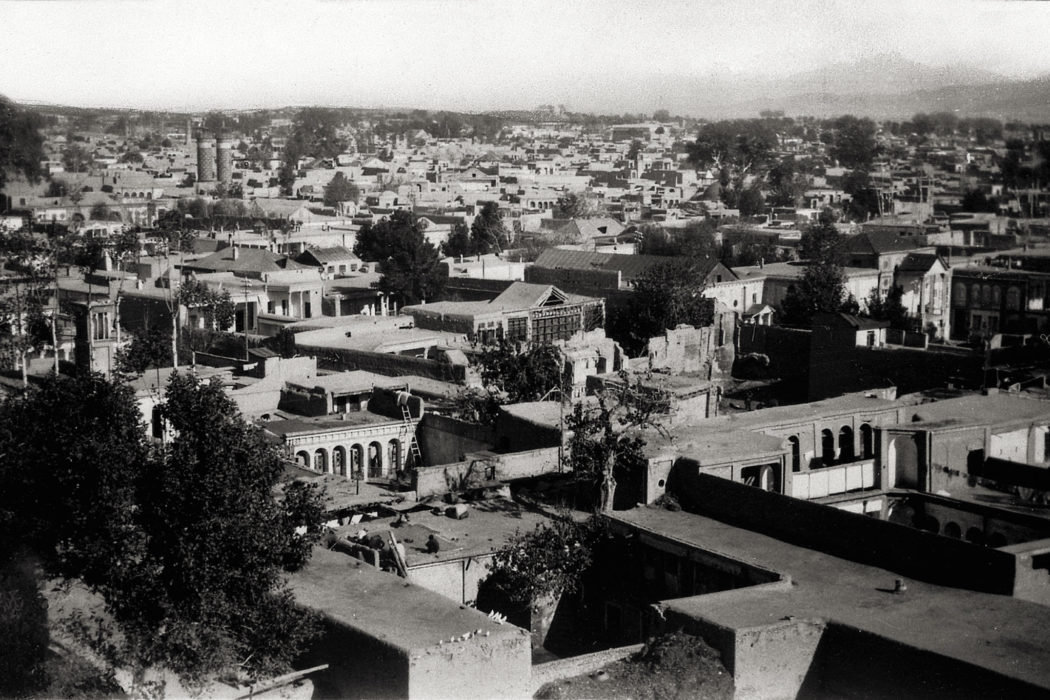‘ABDU’L-BAHÁ WAS IN the best of health after more than a week recuperating in Montclair, New Jersey, away from the heat and humidity of New York. On June 27, 1912, he had taken the tram to the park with Mr. Edsall, his host, who had insisted that they get some fresh air. “What great changes have occurred!” ‘Abdu’l-Bahá reflected. “What waves have swept over us and brought us here!”
The afternoon among the trees could hardly have been more different than that hot day sixty summers ago when hell had broken loose in Tehran.
In 1844, a young man called the “Báb,” meaning “The Gate,” had set in motion Persia’s greatest upheaval of the nineteenth century by declaring himself a messenger of God. By 1850 mobs throughout the country, instigated by religious leaders and aided by the Persian military, had slaughtered 20,000 of his followers. The Báb himself was executed by a regiment of guns in the northern town of Tabríz.
‘Abdu’l-Bahá’s father, Bahá’u’lláh, was the last surviving Bábí leader. He had been protected by his social position and the respect he had earned throughout Tehran. But then, on August 15, 1852, three misguided young Bábís made a feeble attempt to assassinate the Shah.
When Bahá’u’lláh heard what had happened he rode at once to the Shah’s summer palace in Níyávarán, a resort town nestled among the foothills of the mountains north of Tehran. There they arrested him, and marched him amid hostile crowds to the Síyáh-Chál, the “Black Pit,” an underground prison in the city.

“The dungeon was wrapped in thick darkness,” Bahá’u’lláh wrote, “and Our fellow-prisoners numbered nearly a hundred and fifty souls: thieves, assassins and highwaymen. Though crowded, it had no other outlet than the passage by which We entered. No pen can depict that place, nor any tongue describe its loathsome smell.”
The prisoners sat in two rows, amid piles of human excrement and crawling rats, facing each other over stocks that restrained their feet. The Síyáh-Chál was famous for its instruments of torture – chains that weighed 112 pounds and had their own names. Bahá’u’lláh wore them around his neck for the four months he was incarcerated: the chains cut through his skin and left scars for the rest of his life.
Insistent on seeing his father, the eight-year-old ‘Abdu’l-Bahá went to the prison. He was carried on the shoulders of a servant along a narrow corridor, through a small doorway and down two steps. He couldn’t see anything in the pitch black. But he heard his father’s voice coming through the darkness:
“Do not bring him in here.”
‘Abdu’l-Bahá waited in the prison yard until it was time for the inmates’ brief quota of fresh air. From a distance he saw Bahá’u’lláh emerge, chained to several others, beard and hair unkempt, walking with great difficulty. His neck was bent, swollen and bruised by the pressure of the chains and the weight of the massive steel collar. ‘Abdu’l-Bahá watched as his father bent down to wash his face from a mildewed pond. The boy passed out; they carried him home unconscious.
In the bright Montclair sunshine of 1912, as ‘Abdu’l-Bahá stepped off the tram, his words rang out: “What waves are still to come?” It was sixty years since he had caught that first glimpse of his father in prison. He had spent virtually all the intervening years as an exile or prisoner himself.
He and Mr. Edsall walked over to the gazebo at the center of the park. As Mr. Edsall listened, ‘Abdu’l-Bahá told him a stunning piece of news: “Both internal and external enemies are laying plans to imprison me again on my return to the Holy Land.”






